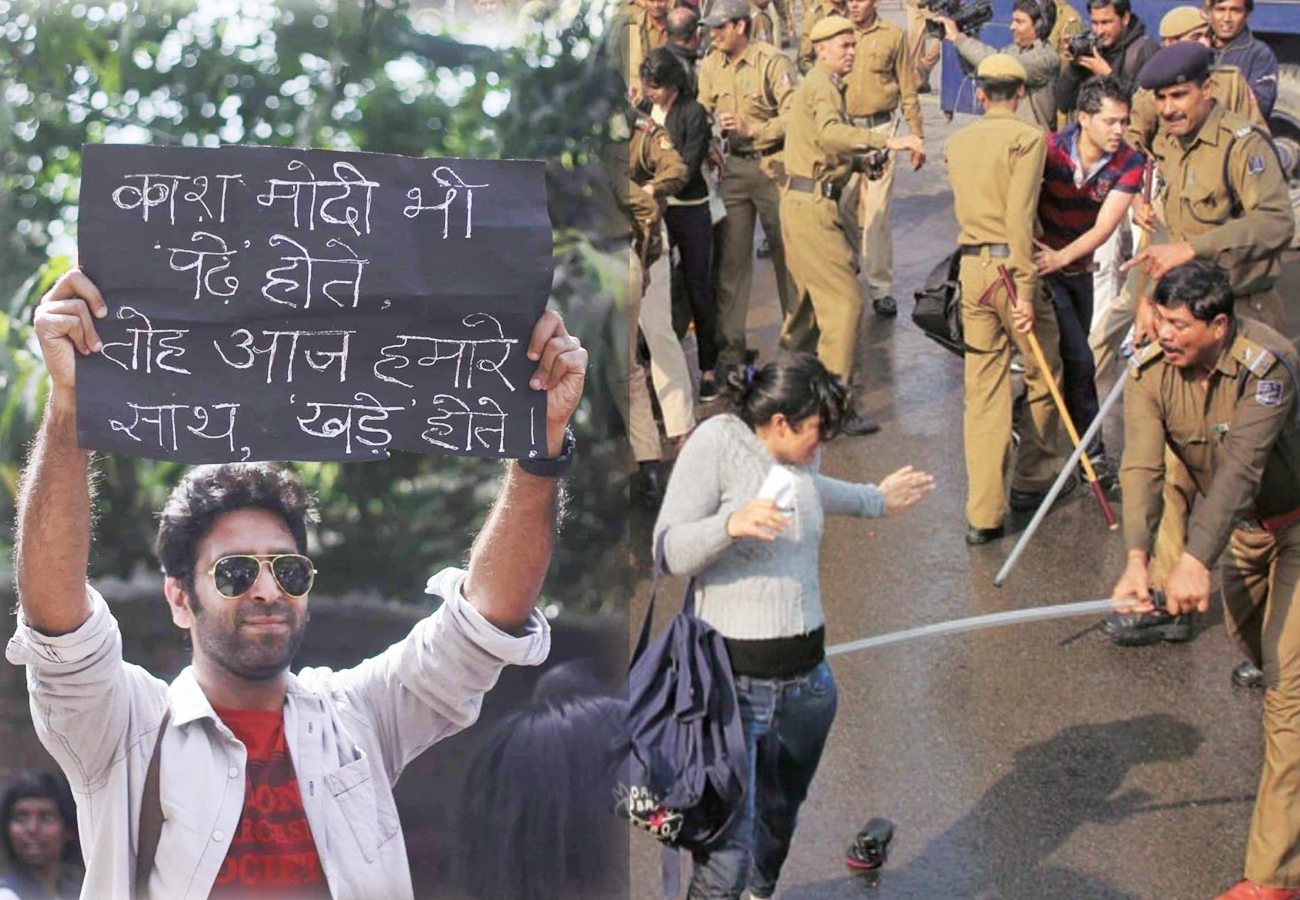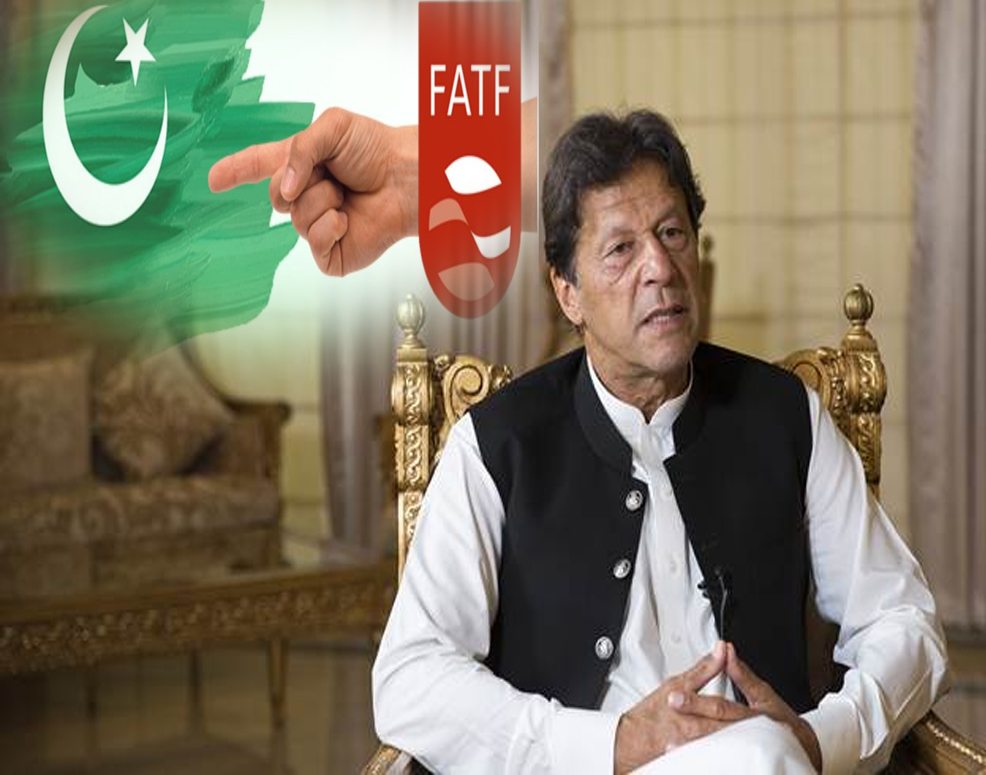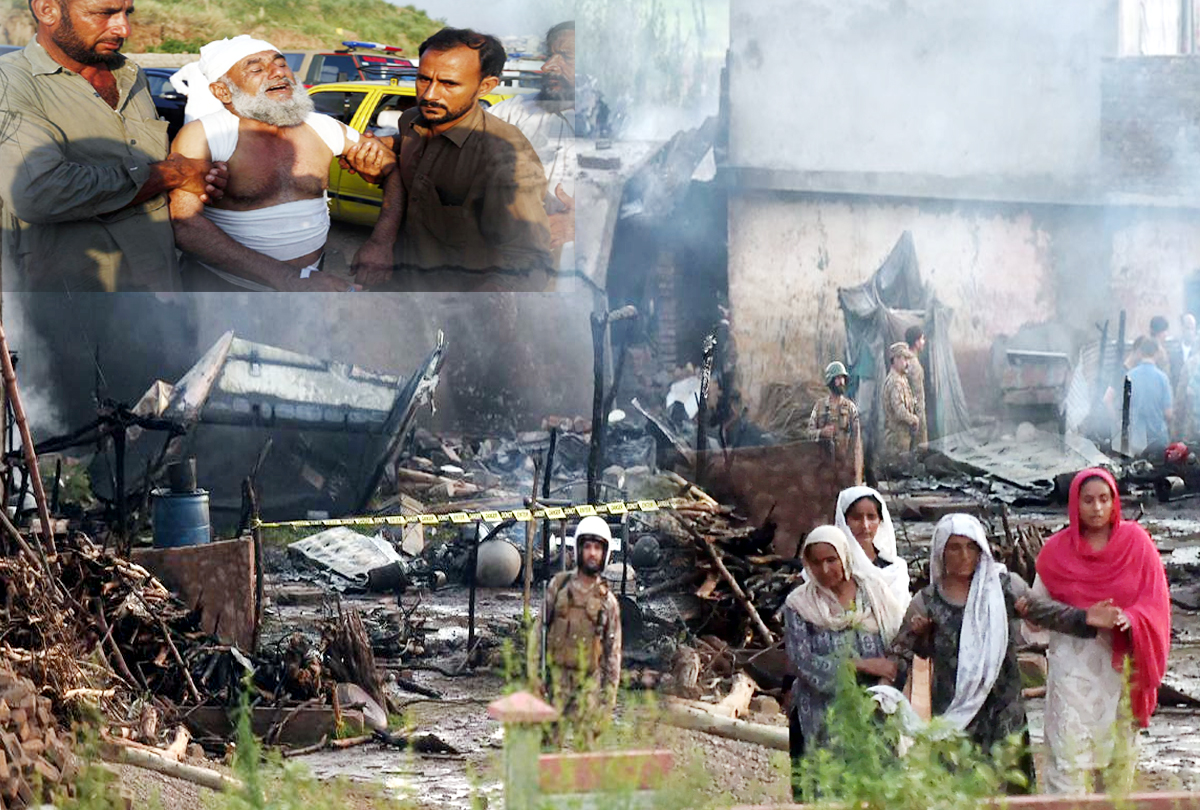JNU Protest: Students Gear Up for More Demonstrations Over Fee Hike, Oppn Corners Govt

[Edited By: Gaurav]
Tuesday, 19th November , 2019 11:52 amA day after JNU students clashed with the police as they were stopped from marching to Parliament against the hostel fee hike, the JNU Students Union will hold a protest today. The protests on Monday paralysed traffic and brought the Capital to a halt as thousands of students participated from different universities across the national capital in solidarity with students of Jawaharlal Nehru University (JNU) who have been raising their voice against the recent fee hike for over three weeks.
According to the police, around 30 police personnel and 15 students were injured during the protest. While the students alleged that they were baton-charged by police, top police officials denied having used any force.
There was heavy deployment of police and paramilitary personnel outside the main gate of JNU campus, even before the march commenced. Water canons and PCR vans were stationed outside.
Before the protest began, the HRD Ministry set up a three-member committee to recommend ways to restore normal functioning of the university and initiate dialogue with the students and administration.
The protesters commenced the march around noon and broke the first set of barricades at the main gate of the campus and proceeded towards Baba Gangnath Marg where another set of barricades awaited them.
The police detained about 100 protestors, including JNU Students Union president Aishe Ghosh, Secretary Satish Chandra Yadav and former JNUSU president N Sai Balaji. The students then took at an alternative route through the Munirka village and came near the Munirka metro station.
They raised anti-government and anti-administration slogans and started marching towards RK Puram from where they reached Bhikaji Cama place and subsequently marched onto Ring Road causing traffic to come to a halt at many intersections.
The students were ultimately stopped outside Safdarjung Tomb where, they alleged, the police baton- charged them, a charge denied by the police.
Meanwhile, the top brass of Delhi police tried to initiate a dialogue with them and urged them to not take law into their hands. Traffic was also affected in some parts of Lutyens' Delhi as the students marched towards Parliament. Among other intersections, vehicles were moving at a snail's pace on Nelson Mandela Marg, Aurobindo Marg and Baba Gang Nath Marg.
The entry and exit points of three Delhi Metro stations near Parliament — Udyog Bhawan, Central Secretariat, Patel Chowk and Lok Kalyan Marg, were shut down temporarily and trains did not halt at Udyog Bhawan and Patel Chowk. The services resumed four hours later.
Students took to Twitter to share pictures of the march and of the injuries they received allegedly in the lathicharge, as the hashtag "emergencyinJNU" trended on the microblogging site.
The students camped outside the Safdarjung tomb for nearly four hours. The detained students were released later in the evening and police escorted a delegation of four JNUSU members to HRD secretary.
JNUSU members claimed that they met HRD Joint Secretary GC Hosur and handed over a memorandum of demands, including rollback of the fee hike and sacking the vice chancellor. However, there was no official word from the university about the meeting.
The remaining students were asked by police to leave the venue after the JNUSU delegation left for the meeting. The opposition also slammed the government over the issue.
While the Congress claimed the present dispensation was "afraid" of any varsity which encouraged free flow of thought, CPI(M) general secretary Sitaram Yechury also condemned the alleged police action against students, saying it was not the right way to deal with democratic protests.
In a statement released by the Delhi Police, the department said they did not use force against the protesting JNU students. "There was no use of water cannons, tear gas shells or lathicharge at any stage of the protest. Women staff was deployed in adequate numbers to deal with female protestors. Apart from 10 companies of CAPF, around 800 Delhi Police personnel were deployed to handle the protest and ensure maintenance of law and order," it said.
The JNU Teachers' Association (JNUTA) has also expressed concern over the current situation in the university campus.
Latest News
-
2-Doxy-D is a game-changer drug - discovered by sc
-
UP Covid News: Recovery rate rises 86 percent in U
-
Big B orders 50 oxygen concentrators from Poland,
-
Today is Akshay tritiya-PM Modi and Akhilesh yadav
-
Kanpur health department doing preparations to fig
-
UP Govt. must be held accountable for "failing" it
-
16 doctors in Unnao UP resign yesterday but retrac
-
Vaccine is safety cycle against corona pandemic-CM
-
Life of every person is priceless,rescue is the be
-
Kanpur Municipal Corporation will make dust free K
-
Corona vaccination: UP government withdraws the de
-
UP Government should follow the orders of Highcour
-
Uttar Pradesh-IG roaming in the city without the u
-
PM, take off those pink goggles, by which nothing
-
Rahul Gandhi's counterattack on BJP Government’s s
-
Happy international nurse day-PM Modi, Rahul Gandh
-
Online food delivery and liquor shops can open the
-
Egoistic BJP should work in public interest instea
-
High court directed UP Government to make a Covid
-
Isolation rooms to be built in industrial units, a
-
WHO has appreciated the effort of the Yogi Adityan
-
Brother is forced to carry his corona afflicted br
-
Lucknow- Free auto service for covid patients
-
Lucknow-Defense Minister and CM Yogi inaugurated
-
Wine shops opened in kanpur
-
Kanpur: oxygen demand 50 percent decrease as infec
-
Kanpur Crime Branch Police arrested 2 accused of i
-
Kanpur police's initiative to prevent corona infec
-
CM Yogi inspected the community health center in c
-
Corona's third wave: IIT professor claims not to c
World News
-
American president Appoints Two More Indian To Key
-
Arora Akanksha an Indian running for United Nation
-
Brazil thankes india with hanuman after receiving
-
Toronto protest against Indian citizenship law as
-
One-Of-A-Kind Wedding: After Groom's Father Gets A
-
Kim's Horse Ride On Sacred Mountain Hints At "Grea
-
Chinese President’s India visit on track, confirms
-
'Howdy Modi' event 'win-win' situation for Modi an
-
Malala urges U.N. to help Kashmiri children go bac
-
Rocket blast at U.S. Embassy in Kabul on 9/11 anni
-
PM Modi launches $4.2 mn redevelopment project of
-
Pakistan Blacklisted by FATF's: After Failing to A
-
Amazon Rainforest burning: Brazil President tells
-
10 shoking pics of Amazon Rainforest Burning
-
200 pakistan twitter accounts suspended on kashmir
-
Trump dials Imran Khan, asks to ‘moderate rhetoric
-
No policy change on Kashmir, says U.S.
-
Hamza, the son of Osama bin Laden, is dead
-
Ethiopians planted more than 200 million trees in
-
Pakistani military aircraft crash: All 5 crew memb























